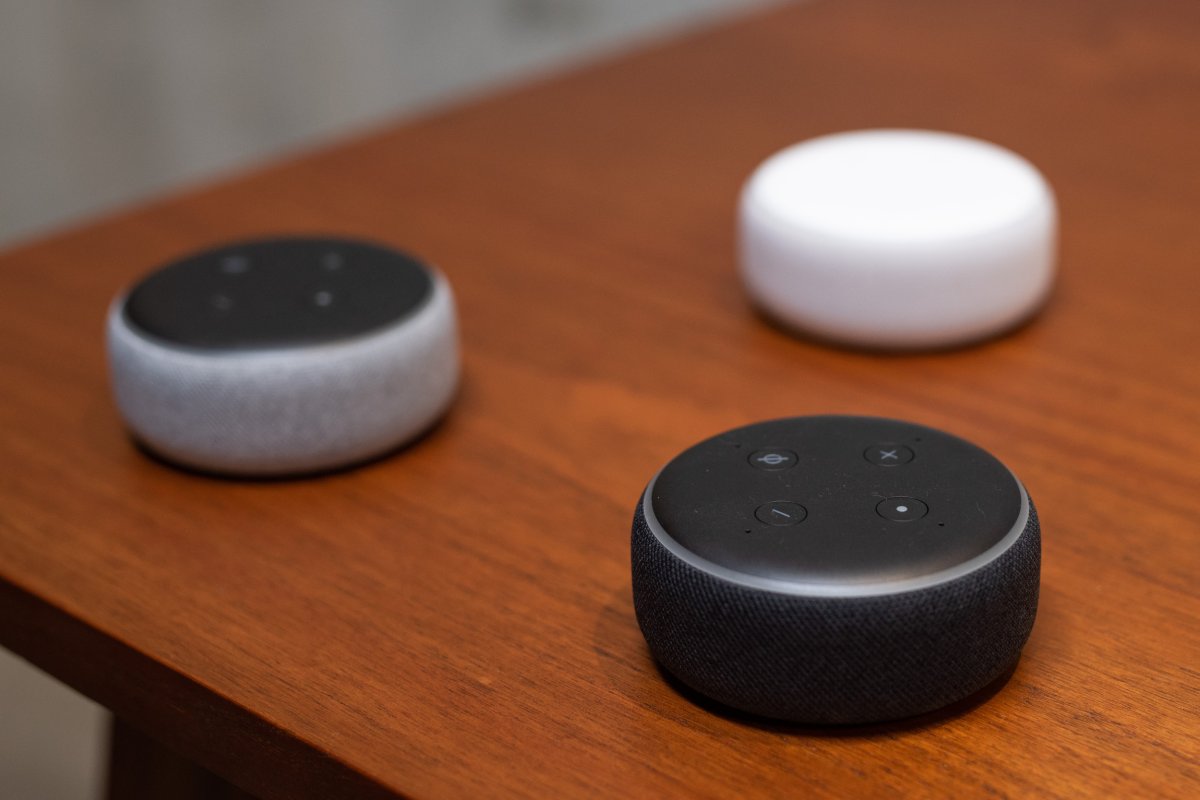Amazon barred a Baltimore, Maryland-based user from its smart home features for a week over an allegation that his doorbell intercom had made a "racist remark" towards a delivery driver.
In an explanation of his experience on Medium, Brandon Jackson, an engineer at Microsoft, who is Black, said no one was home when the alleged slur was made and the incident had led him to question his use of Amazon products.
The tech giant has since restored access to his account, and said in a statement that it was working to prevent similar incidents from happening in future.
The occurrence highlights the growing number of household features and appliances that are becoming increasingly technologically advanced, and the potential pitfalls of an interconnected home.

According to Statista, in 2022, 13 percent of homes in the U.S. had a large smart appliance, such as a refrigerator, while the same number had a small smart appliance, such as a coffee machine. It also predicted the industry's revenue would reach nearly $10 billion in 2023.
On June 4, Jackson wrote that on May 25, he found he had been locked out of his Echo Show account, and was unable to interact with the devices connected to it, after a parcel had been delivered the day before.
"This wasn't just a simple inconvenience, though," he said. "I have a smart home, and my primary means of interfacing with all the devices and automations is through Amazon Echo devices via Alexa."
After checking if one of his online accounts may have been compromised, with no signs they had, he said he phoned Amazon's customer support.
"I was told that the driver who had delivered my package reported receiving racist remarks from my 'Ring doorbell' (it's actually a Eufy, but I'll let it slide)," Jackson wrote.
The software engineer went on to say that he had multiple security cameras on his house, and claimed the footage he reviewed "confirmed that no such comments had been made."
Jackson also said he was told the delivery occurred at around 6:05 p.m. ET on the day in question, when "it was practically impossible for anyone in my house to have made those comments."
He claimed security camera footage revealed his doorbell had issued an automated response—"Excuse me, can I help you?"—as the driver was walking away while wearing headphones, suggesting he must have misheard the message.
"Most delivery drivers in my area share the same race as me and my family," he said. "It seemed highly unlikely that we would make such remarks."
While Jackson stressed he supported Amazon taking steps to protect its delivery drivers, he questioned "why my entire smart home system had to be rendered unusable during their internal investigation" and was "seriously considering" switching to another company's products.
Simone Griffin, an Amazon spokesperson, told Newsweek: "We work hard to provide customers with a great experience while also ensuring drivers who deliver Amazon packages feel safe.
"In this case, we learned through our investigation that the customer did not act inappropriately, and we're working directly with the customer to resolve their concerns while also looking at ways to prevent a similar situation from happening again."
While there are seemingly no other accounts of individuals being locked out of their smart home devices over alleged racist comments by their doorbell, a large number of Americans are seemingly concerned about questions of privacy and security from home appliances connected to online accounts.
In May, a white paper by Parks Associates, a market research firm, compiled with Iris, a cyber protection company, found among 10,000 internet-connected households surveyed, nearly half reported experiencing at lease one privacy or security issue in the past year.
Some 72 percent of respondents were worried about the security of the personal data collected by smart devices—a concern Amazon has recognized, but says it designs all its products "with privacy and security in mind."
On May 31, Amazon was ordered to pay nearly $30 million by the Federal Trade Commission over alleged privacy violations. The tech giant said in a statement the same day that it denied breaking the law, but agreed to the proposed settlement.
A rising number of people are investing in smart devices for their accessibility benefits, and some have noted that smart homes could allow older people to remain independent for longer.
Uncommon Knowledge
Newsweek is committed to challenging conventional wisdom and finding connections in the search for common ground.
Newsweek is committed to challenging conventional wisdom and finding connections in the search for common ground.
About the writer
Aleks Phillips is a Newsweek U.S. News Reporter based in London. His focus is on U.S. politics and the environment. ... Read more
To read how Newsweek uses AI as a newsroom tool, Click here.








